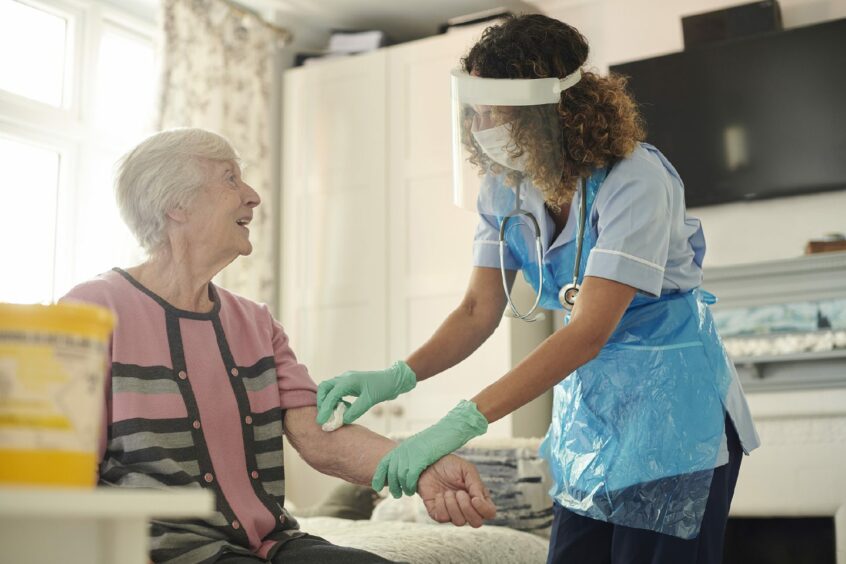A study of the mental health of NHS Highland workers during Covid-19 has found more support is required.
The health board has said the University of the Highlands and Islands (UHI) research will now inform the way in which it supports workers, including increased psychological support for health and care colleagues.
The research, carried out by a team from the UHI, examined the impact of the pandemic on health and social care staff.
The results showed some simple measures could help – including the use of a wellbeing app.
The study has now been used by the UK parliament and the World Health Organisation to inform policy in support of staff wellbeing nationally and internationally.
The project was led by Johannes De Kock, a research fellow in the university’s division of rural health and wellbeing and a chartered clinical psychologist at NHS Highland.
The aim of the study was to assess the mental health of NHS Highland health and social care workers during Covid-19 over a period of time.
NHS staff asked to use wellbeing app
The team then examined whether the use of a tailored version of the NHS-approved mental wellbeing app, My Possible Self, could help support workers.
The research showed levels of anxiety and depression reported among NHS Highland health and social care workers were similar to those of staff in Covid-19 urban hotspots.
Mr De Kock worked with My Possible Self’s design team to digitally modify the content of the wellbeing app to suit NHS Highland.
The app was used by 169 staff over a four-week period. This allowed the research team to monitor changes in levels of anxiety, depression and mental wellbeing, as well as resilience.
More study required for further interventions
Mr De Kock said: “Our results from this pilot study showed potential benefits in using such tailored digital interventions to support the psychological health and resilience of staff working through the Covid-19 pandemic.
“Further studies with larger samples are now needed to investigate digital interventions’ support for staff working through the tail of Covid-19 and its aftermath.”
Fiona Hogg, director of people and culture at NHS Highland, said: “The findings of this exciting new project will feed into our long-term health and wellbeing strategy and plans.
“It will build on ongoing support including our employee assistance programme, the National Wellbeing Hub, investment in increased psychological support for health and care colleagues, alongside dedicated government funding for wellbeing initiatives.
“We’re excited about the opportunities that a tailored wellbeing app could offer, especially in our remote and rural context.”
‘This is an important study’
Jude Halford, lead for clinician mental health, Royal College of Psychiatrists in Scotland, said: “This is a really important study, and the findings bear out the experiences of our workforce.
“Improvement in staff mental health is essential. It benefits them and helps keep health and social care services running, thereby providing benefit to the public whose own mental health has been impacted by the pandemic.
“The pandemic has caused extra demands, stress and pressure on staff, making the requirement for mental health care intervention greater.”
The research project received £44,581 of Scottish government funding as part of the Chief Scientist Office’s call for rapid research into Covid-19 in March 2020.
A summary of the research can be viewed on the Chief Scientist Office website.

